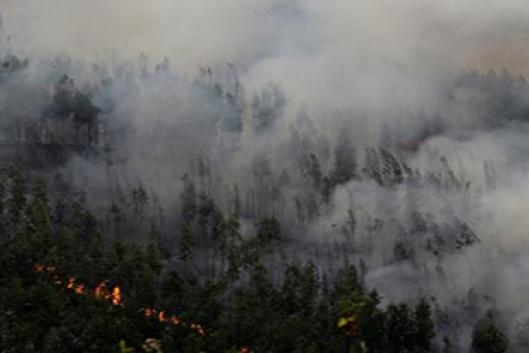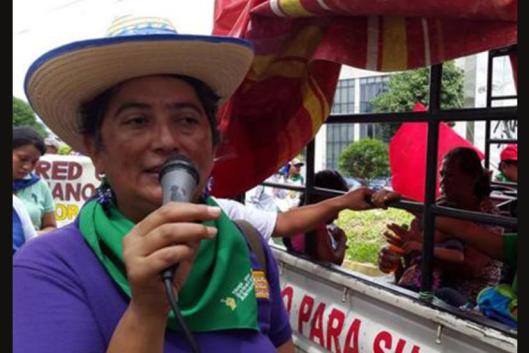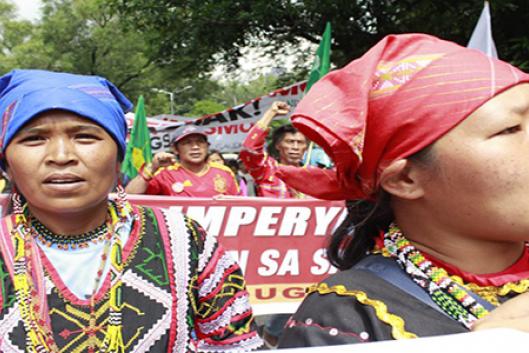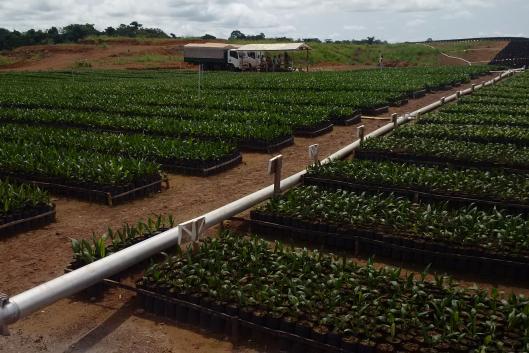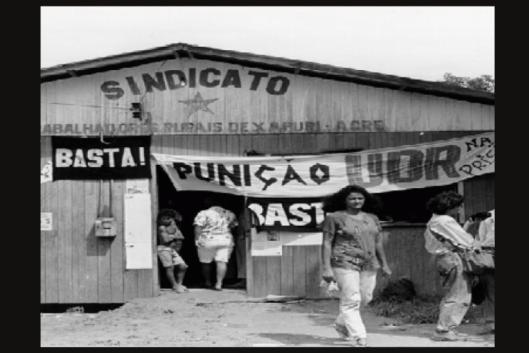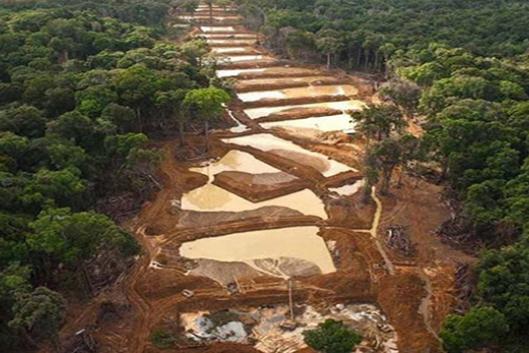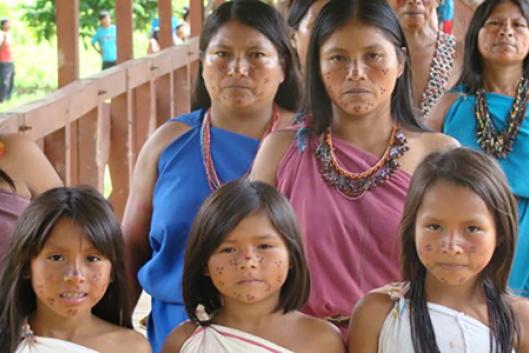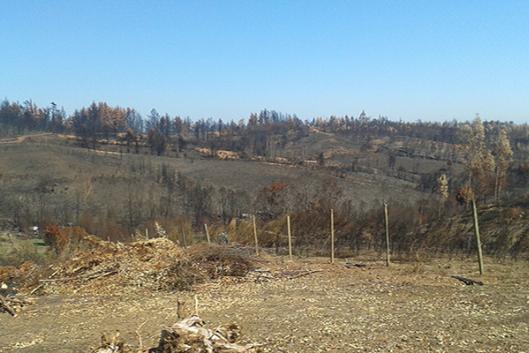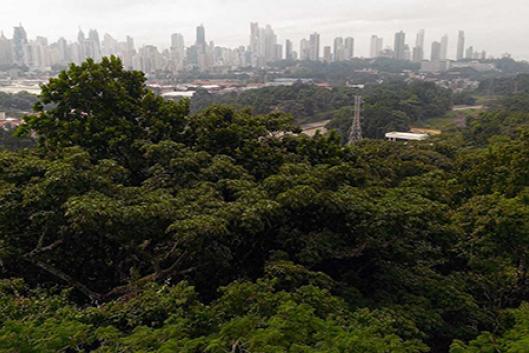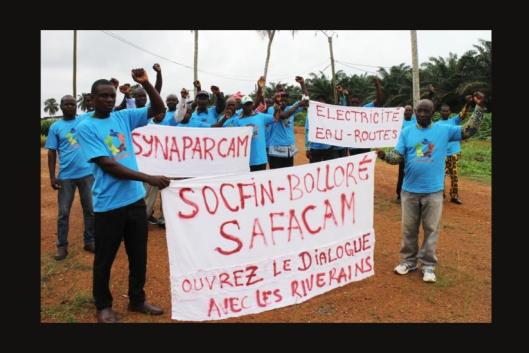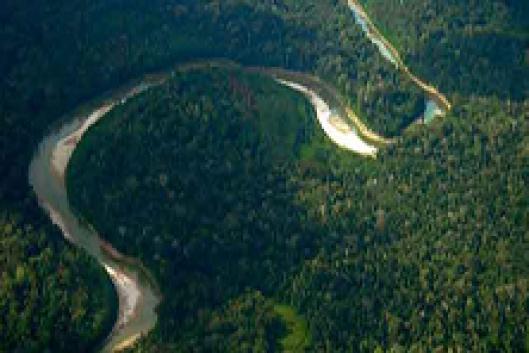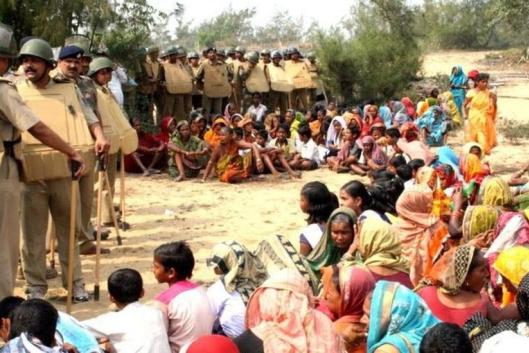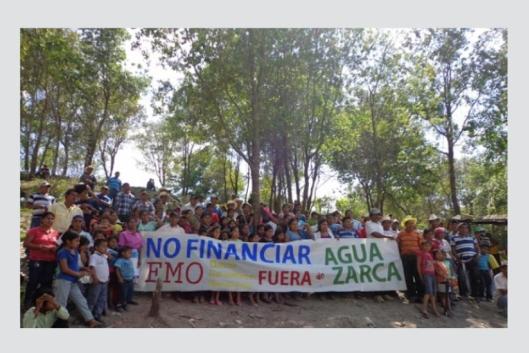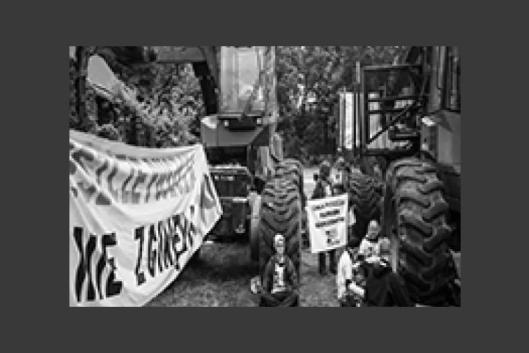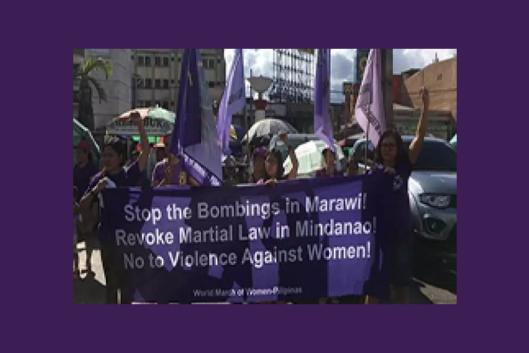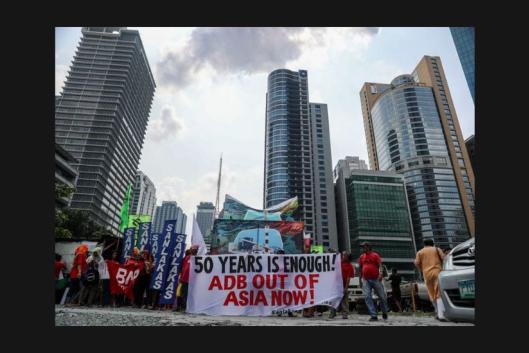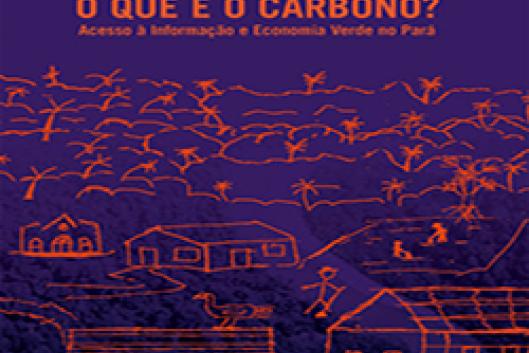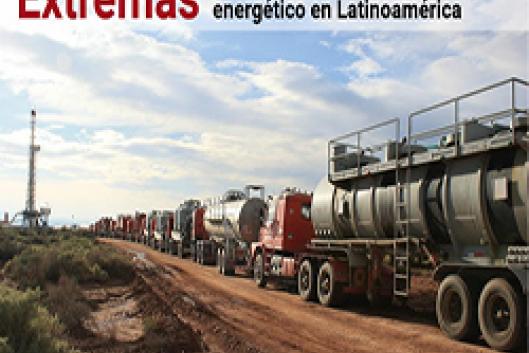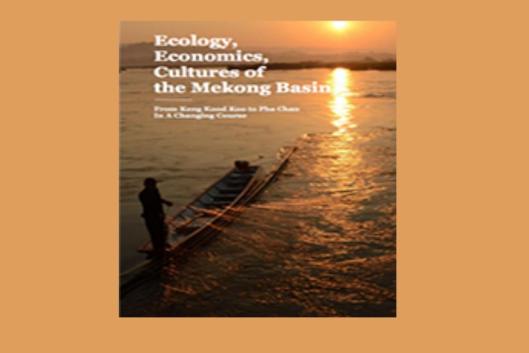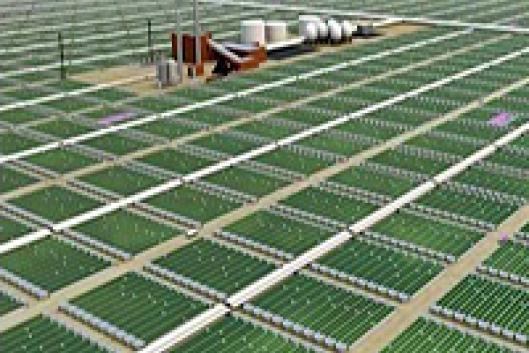The January 2017 bulletin focused on the numerous initiatives being announced worldwide that promote the expansion of millions of hectares of tree plantations (Bulletin 228, January 2017). At the same time, the plantations and pulp and paper industries, among others, are strongly pushing for Genetically Engineered (GE) trees – eucalyptus and poplar in particular – to be licensed for commercial use. Consequently, this time, the editorial of the WRM Bulletin warns about the promotion of GE trees.
Bulletin Issue 231 – June 2017
Resistances struggles and women's voices confronting territories destruction and false solutions
WRM Bulletin
231
June 2017
OUR VIEWPOINT
RESISTANCES STRUGGLES AND WOMEN'S VOICES CONFRONTING TERRITORIES DESTRUCTION AND FALSE SOLUTIONS
-
10 July 2017In March 2017 the people of El Salvador won a huge victory. The Metal Mining Ban ruled absolute prohibition on mining exploration, exploitation and processing—whether open-pit or underground—as well as the use of toxic substances like cyanide and mercury. The legislation is retroactive, and thus completely cancels permits that might be in process. The potential harm to rivers and water sources has been one of the reasons social movements are battling the extractive industry.
-
10 July 2017Juvy Capion was an indigenous B’laan mother of three, and a staunch defender of their ancestral domain in South Cotabato, Philippines, against the Tampakan Mining Project. Her house was strafed at in the early morning of 18th October 2012. The men of the 27th Infantry Batallion of the Armed Forces of the Philippines (AFP) who led the shooting, said that it was a legitimate military operation against a bandit. The “bandit” was Daguil Capion, Juvy’s husband, who was a tribal leader also strongly opposed to the mining project. The shooting left Juvy dead, along with her two sons: Jordan, 12 years old, and John, 8 years old. Vicky, 4 years old survived the attack. Daguil, on the other hand, was not at home at that time.
-
10 July 2017"In these supposedly win-win contracts, I would like to know what our communities are gaining. On the contrary, we are losing and even dying a slow death." With this cry of despair, Célestine Ndong (1) describes the bitter situation in Mouilla, Gabon, where the GRAINE ["seed" in French] program has been underway for several years.
-
10 July 2017Dercy Teles of Carvalho was the first female president of a Brazilian Rural Workers' Union, in the town of Xapuri, Acre in 1981. Xapuri became known nationally and internationally because of the union leader who succeeded Dercy: Chico Mendes. We spoke with Dercy at the recent gathering—"Effects of environmental and climate policies on traditional peoples: forest management, REDD, PES [Payment for Environmental Services]"—about the rich history of the rubber tappers' popular movement, including difficulties, lessons learned and challenges (1).
-
10 July 2017Venezuela is well known for being one of the main oil exporters in the world, and now also because of the major crisis it is currently facing, which is affecting all areas of social life in the country. Despite extensive international news coverage about what is happening in Venezuela, dominant versions of the story are notably biased, manipulated and incomplete; and they rarely highlight the root causes of the situation (1).
-
7 July 2017How to make the sustainability of life the center of debate The VIII Pan-Amazonian Forum, held from April 28th to May 1st, 2017 in Tarapoto in the Peruvian Amazon, aimed to bring together and coordinate social movements, indigenous peoples and traditional communities from the nine countries of the Amazon basin: Brazil, Ecuador, Venezuela, Bolivia, Cooperative Republic of Guyana, Suriname, Colombia, Peru and French Guyana. A construction process—which took place for a year and half prior to the Forum—made it possible to establish spaces for dialogue and debate with the objective of organizing collective, horizontal and intercultural discussions.
-
7 July 2017At the beginning of 2017, the south central region of Chile suffered a wave of fires that lasted for several weeks and affected around 500,000 hectares—including forests, monoculture tree plantations and small family farms. Dozens of hot spots spread throughout a large region of the country, where the flammability of pine and eucalyptus plantations, high temperatures and wind made the fire reach uncontrollable dimensions. The town of Santa Olga of about 5,000 inhabitants was completely burned; hundreds of people lost their homes in other towns; thousands were evacuated; and 11 people lost their lives in the areas directly affected, as well as firefighters who voluntarily fought the fire.
TRICKS AND DECEPTION THAT PROMOTE LAND GRABBING
-
7 July 2017For many people, REDD+ is about projects that save forests. In reality, however, REDD+ has never been about protecting forests and also no longer really is about projects but about programmes covering whole regions or provinces within a country. Though many REDD+ projects continue to exist, causing harm to indigenous peoples and forest communities by restricting their traditional forest use practises. (1)
ACTION ALERTS
-
7 July 2017Hundreds of people who live in the vicinity of SOCAPALM and SAFACAM plantations went to SOCAPALM headquarters in Bonanjo, Douala, Cameroon, to request a serious dialogue. Local residents complain that the existing dialogue is very uncertain, and that it lacks a strong framework for effective problem-solving. This is considering the very little progress made in recent years. Local communities, organized through SYNAPARCAM, are requesting to meet with the Director General to establish a solid framework for dialogue. Read the press release from the National Synergy of Farmers and Coastal Residents of Cameroon (SYNAPARCAM, by its French acronym). Read SYNAPARCAM's demand to reach a resolution to conflicts (both in French).
-
7 July 2017In support of indigenous organizations in Peru, the Indigenous Missionary Council of Brazil (CIMI) expresses great concern for and stands in defense of the lives of indigenous peoples in voluntary isolation, who live on the border of Brazil (Acre) and Peru (Madre de Dios). These peoples are currently threatened by the project to build a highway on the Peruvian side, which would connect Puerto Esperanza with Iñapari. If built, the highway would cause huge socio-environmental impacts, affecting indigenous peoples and territories in the region, riverine and farming communities, rivers, forests, fauna and flora of the region. Read the complete press release in Spanish and Portuguese here:
-
7 July 2017The Odisha government gave more than 800 hectares of land to the South Korean steel giant POSCO for building a power plant, jeopardizing around 4000 families. The project has since the very beginning faced firm resistance from local communities as well as serious question marks from human rights and environmental groups on its social and environmental impacts. After POSCO pulled out of the project earlier this year, Odisha’s Industry Minister announced that the land would be transferred to the Odisha Industrial Infrastructure Development Corporation (IDCO), a state agency. Authorities have begun constructing a boundary wall around the project site to prevent ‘illegal encroachments’.
-
7 July 2017Since 2013, the Civic Council of Popular and Indigenous Organizations of Honduras (COPINH) has demanded the withdrawal of the banks—FMO (Netherlands), Finn Fund (Finland) and the Central American Bank for Economic Integration (BCIE)—from the "Agua Zarca" project on the sacred Gaulcarque River, due to the project's connection to eviction and death in the Río Blanco community. To date, none of the three banks has withdrawn from the project, despite the fact that FMO and Finn Fund have been announcing they will do so since May 2016. COPINH denounces that the lack of the bank's withdrawal means prolonging the aggressions and intimidations against the community.
-
7 July 2017After years of efforts to limit the scale of logging and increase the amount of protected areas in the Białowieża Forest, Poland, the Polish Government has begun intensive logging using the outbreak of the spruce bark beetle as an excuse. In the first four months of 2017, over 10 thousand trees have been cut in parts of the forest with the oldest trees, over 100 years old. The recently imposed legal ban on entering major parts of this UNESCO’s World Heritage Site serves to prevent citizen control of the intensified logging. A group of activists have set up a camp to stop the devastation of the forest and advocate for turning it into a national park, successfully blocking the logging on several occasions.
-
7 July 2017Women leaders from several national, regional and international organizations called for truth about what’s happening in Marawi and Mindanao, Philippines, to come out and for perpetrators of violence to be pursued. Around 130 persons have been killed, thousands trapped and tens of thousands more displaced following a botched military operation to capture Abu Sayyaf’s leader, Isnilon Hapilon. Martial Law was declared all over Mindanao. The group reminded the public how wars and militarism have always targeted the bodies of the sexually objectified and those considered to be most vulnerable—the women.
RECOMMENDED
-
7 July 2017The Asian Development Bank (ADB) marks 50 years as the second largest source of development finance in the Asia-Pacific region, just after the World Bank Group. Focus on the Global South has released a special newsletter highlighting the Asian people’s resistance against the Bank. It shows how the institution has been fostering inequalities and mis-governance while enjoying the highest degree of immunity to legal liabilities and accountability to national laws for problematic investments, faulty policy advice, violation of people’s rights and livelihoods, and destruction of the environment. This documentation is aimed at joining people’s movements and civil society in building a region-wide challenge to the ADB’s immunity.
-
7 July 2017Artigo 19 launches its report "I came here to understand: What is carbon? Access to information and the green economy in Pará." The report analyzes and criticizes the absence of processes that facilitate transparent access to information, and social participation, in the existing projects in Pará related to the carbon market and the REDD+ mechanism (Reducing Emissions from Deforestation and Degradation). You can read the publication in Portuguese here: http://artigo19.org/blog/2017/03/24/11201/
-
7 July 2017Focused on what are called "extreme energies," an Oilwatch report brings together ten articles that discuss and challenge governments' and companies' initiatives to sustain the fossil fuel matrix. From extraction of heavy and extra-heavy crude oil, to tar sands, to offshore sources in increasingly deep water, to hydraulic fracturing—extreme energies additionally require a global infrastructure chain and transportation fleet. In addition to serious environmental destruction, this intensifies the violence against traditional peoples and their livelihoods. Read the report in Spanish here:
-
7 July 2017Launched by the Thai organization TERRA, this publication records the story of Mekong riparian communities from 25 sub-districts in 7 provinces of north-eastern Thailand (Isaan). It aims to bring to life the knowledge uniquely shaped by south-east Asia’s longest international river, the Mekong River. It illustrates the delicate complexity of the Mekong hydrology and sub-ecosystems and how these provide the basis of life and livelihoods to the people along the river. It also explores the local cultures and socioeconomic values attached to it with a hint of history and ways of life. The publication in English and Thai can be found in this link: http://terraper.org/web/en/node/1824
-
7 July 2017The organization Biofuelwatch is launching a new website page dedicated to compiling their analyses of aspects of the biotechnology push to engineer crops, trees, and microbes for biofuels and the “bioeconomy”. The site includes in-depth investigations of three biofuel companies – Algenol, Mascoma, and Solazyme/TerraVia, and will be updated with forthcoming reports on algae and cellulosic biofuels, followed by further materials. See the website in English following this link: http://www.biofuelwatch.org.uk/2017/biotechnology-for-biofuels/
